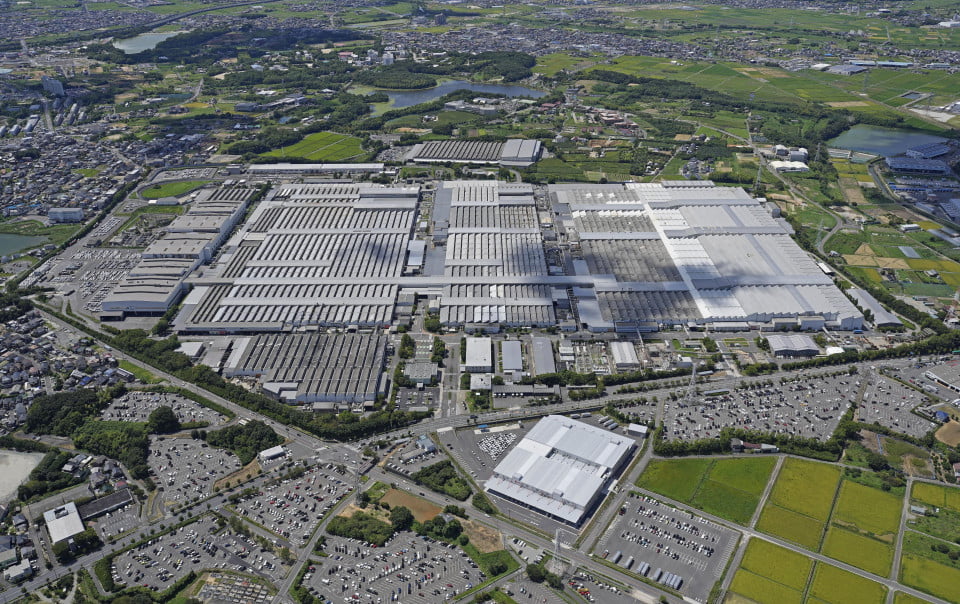Toyota Motor Corp. said Wednesday it expects its partial production halt in Japan to continue at least through the weekend, with the company seeing its operations disrupted following an explosion at a parts supplier on Monday.
The disruption has continued to widen, with 11 production lines at seven factories in Aichi and nearby prefectures in central Japan halted as of Wednesday, expanding from 10 production lines at six factories the previous day, according to the world’s largest carmaker.
Although one of the plants is scheduled to resume operations on Thursday, the others will remain shut on Thursday and Friday.
In addition, two plants in northeastern Japan will join the list Friday, bringing the total of affected lines and factories to 13 lines at eight plants.
The company said that those factories will resume production on Oct. 23 at the earliest.
The latest disruption stems from an accident that occurred on Monday at Chuo Spring Co.’s factory, which supplies springs, in the city of Toyota, Aichi Prefecture.
While the cause of the explosion is still being investigated, Chuo Spring has started production using alternative parts at an affiliated company in China, and is exploring air freight options.
With the help of Toyota and its group firms, Chuo Spring is also preparing to start production on a different line at the factory where the accident occurred, as well as at an affiliated company in Nagasaki Prefecture, southwestern Japan.
The Toyota group has 14 assembly factories across the country, making a total of around 14,000 cars a day.
The disruption has affected the production of models such as the Corolla and the RAV4 sport utility vehicle.
Toyota is known for its just-in-time manufacturing in which it aims to produces the right amount of cars to meet demand without excess or deficiency at all times.
Such a system is highly cost-effective but is susceptible to a production halt when emergencies occur as the automaker only has a limited amount of parts to assemble at hand at any given time.
The stoppage is the latest in a series of production problems that the automaker has experienced in recent years, including a glitch in its part ordering system in August.
Source : Kyodo News










